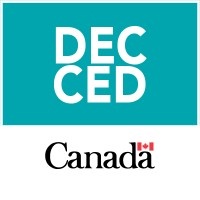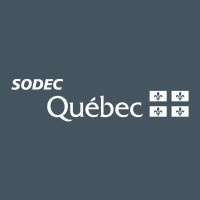
Open
Official Languages Economic Development Initiative in Quebec — For-profit
Last Update: October 27, 2025
QC, Canada
Funding for Quebec SMEs promoting official languages
Grant and Funding
At a glance
Funding available
Financing goals
Marketing a product
Develop a new product
Selling in a new market
See more
Eligible Funding
- Up to 50% of project cost
Timeline
- Open Date : November 2, 2020
Eligible candidates
Eligible Industries
- Information and cultural industries
- Professional, scientific and technical services
- Other services (except public administration)
Location
- Quebec
Legal structures
- For-profit business
Annual revenue
- All revenue ranges
Organisation size
- All organization sizes
Audience
- Language Minorities
- Rural or Northern Residents
Overview
Get a repayable contribution to cover up to 50% of the costs of a project that supports the economic development of an official-language minority community in Quebec through a range of activities.
Activities funded
- Development of strategies such as market studies, action plans, or business intelligence for economic growth in official language minority communities.
- Facilitation of networking and business contacts to support entrepreneurship within these communities.
- Provision of information, consulting, and support services for business development.
- Implementation of commercialization strategies, including product or service design and market access initiatives.
- Development, modernization, or expansion of facilities and acquisition of innovative equipment or IT solutions.
Examples of admissible projects:
$ 35,000
Design and launch an online platform to support French-speaking artisans
$ 50,000
Modernize a manufacturing facility to enhance bilingual employee training programs
$ 70,000
Expand a community center to provide more French-language services
$ 35,000
Implement a digital marketing strategy for a Francophone bookstore
$ 35,000
Develop a bilingual business consulting service to support local startups
$ 80,000
Recruit bilingual healthcare professionals to launch a French clinic
Eligibility
- The applicant must be a for-profit SME located in a Regional County Municipality (RCM) outside the Greater Montréal region where English-speakers make up more than 5% of the total population, or a non-profit organization (NPO) in an RCM with more than 500 English-speakers.
- The applicant’s project must support the economic development of an official language minority community (OLMC).
- The project should align with the objectives of the Economic Development Initiative – Official Languages and demonstrate economic benefits for the OLMC.
Who is eligible?
- Small and medium-sized enterprises (SMEs) in a regional county municipality (RCM) outside the Greater Montréal region where English-speakers comprise more than 5% of the population
- Non-profit organizations (NPOs) in an RCM with more than 500 English-speakers
Who is not eligible
- Retail businesses (e.g., clothing stores, grocery stores, automobile sales and maintenance outlets)
- Food services (e.g., restaurants and cafés)
- Transportation services
- Housing construction companies
- Daycare services, hair and beauty salons, nightclubs, bars and cabarets
Eligible expenses
- Development of strategies including studies, diagnoses, or action plans.
- Business networking and contact activities.
- Information, consulting, and support services costs.
- Design of products and services for commercialization.
- Acquisition of equipment, IT tools, and technologies.
- Facility development, construction, modernization, or expansion expenses.
- Costs related to recruitment or use of specialized resources to promote official languages.
Eligible geographic areas
- SMEs located in a regional county municipality (RCM) outside the Greater Montréal region of Quebec where English-speakers comprise more than 5% of the total population.
- NPOs established in a Quebec RCM with more than 500 English-speakers.
Selection criteria
- Economic benefits for an official language minority community (OLMC).
- Contribution of the project to the Initiative’s objectives and expected results.
- Alignment with Canada Economic Development for Quebec Regions' (CED) mandate and priorities.
- Demonstration of financial need and the incentive nature of the assistance, considering other available funding sources.
- Proponent’s management capacity, business or organizational viability, risk level, impact on competition, and availability of CED funding.
How to apply
1
Consultation of resources
- Consult the Project Presentation Guide available on the DEC website.
- Access the resources and tools provided by DEC to guide the project preparation.
2
Communication and additional information
Contact DEC for more information on eligibility and the application process.
3
Preparation of the application file
- Develop and structure your project taking into account the analysis criteria such as economic impacts and project viability.
- Ensure that your project aligns with the mandate and priorities of DEC.
- Gather all required documents, such as action plans, market studies, and financial forecasts.
4
Project Presentation
Strictly follow the instructions in the Presentation Guide to write and format all elements of your application.
5
Submission of the request
- Contact DEC to find out the specific method for submitting files (mail, email, or online portal).
- Submit the entire file according to the submission method required by DEC.
Additional information
- Additional resources such as strategic plans, project guides, and toolkits are available to support applicants.
- Applicants can subscribe to newsletters to receive updates, advice, and services from CED.
- Client feedback on CED services is encouraged through a client satisfaction mechanism.
- CED promotes transparency and offers departmental publications and success stories for reference.
Apply to this program
Frequently Asked Questions about the Official Languages Economic Development Initiative in Quebec — For-profit Program
Here are answers to the most common questions about the Official Languages Economic Development Initiative in Quebec — For-profit. This section explains what the program is, how much funding is available, eligibility requirements, application deadlines, and other important details to help you determine if this grant is right for your business.
What is the Official Languages Economic Development Initiative in Quebec — For-profit?
How much funding can be received?
What expenses are eligible under Official Languages Economic Development Initiative in Quebec — For-profit?
What is the deadline to apply?
Is the Official Languages Economic Development Initiative in Quebec — For-profit a grant, loan, or tax credit?
Who are the financial supporters of the Official Languages Economic Development Initiative in Quebec — For-profit?
Who is eligible for the Official Languages Economic Development Initiative in Quebec — For-profit program?
Who can I contact for more information about the Official Languages Economic Development Initiative in Quebec — For-profit?
Where is the Official Languages Economic Development Initiative in Quebec — For-profit available?
Apply to this program
More programs like this

Grant and FundingClosed
PSCE – Component 2
Investissement Québec (IQ)Non-repayable funding to support SMEs’ export market diversification

Grant and FundingOpen
SCALE AI — Acceleration
Scale AI ClusterSupports Canadian AI startups and SMEs focused on value chains

Tax CreditsOpen
Development of E-Business Tax Credit (CDAE)
Investissement Québec (IQ)Tax credit for development of a Quebec e-business

Tax CreditsOpen
Research, Innovation and Commercialization Tax Credit (CRIC)
Gouvernement du QuébecRefundable tax credit for Quebec business R&D and precommercialization

Grant and FundingOpen
ÉcoPerformance — Recommissioning of building mechanical systems
Gouvernement du QuébecFunding to optimize the operation of building mechanical systems

Grant and FundingClosed
NovaScience Program - Support for projects in scientific culture and innovation
Gouvernement du QuébecNovaScience promotes scientific culture and innovation development

Grant and FundingOpen
Export and cultural visibility support program
Société de développement des entreprises culturelles (SODEC)Financing for Quebec cultural exports

Grant and FundingLoans and Capital investmentsOpen
ESSOR – Component 2: Support for investment projects promoting productivity and business expansion
Investissement Québec (IQ)Supports business productivity and expansion through technological investment

Grant and FundingClosed
Support for Innovation and Productivity for Québec manufacturing companies (SIPEM) - Part 2
PROMPTBoost productivity through targeted technological innovations

Tax CreditsOpen
Tax holiday for a new business created to commercialize intellectual property
Ministère de l'économie, de l'innovation et de l'énergie du Québec (MEIE)Tax credit for commercialization of intellectual property (IP) in Quebec
Sign up to our platform to access the Official Languages Economic Development Initiative in Quebec — For-profit information sheet for free
Get access to 4,000+ programs, practical guides, personalized alerts, and an AI assistant to support your grant applications.